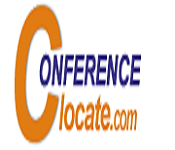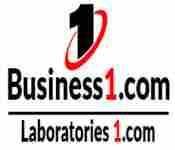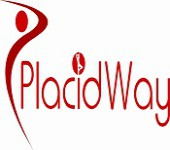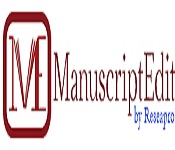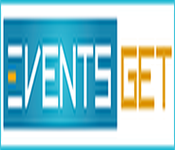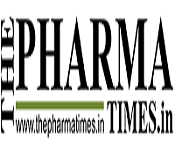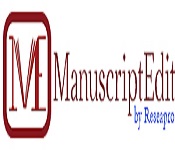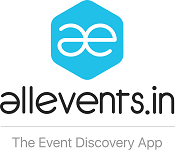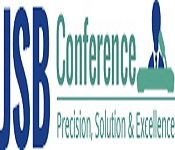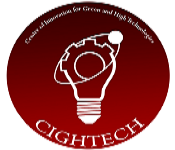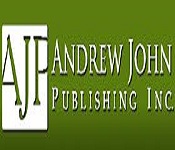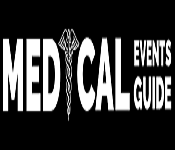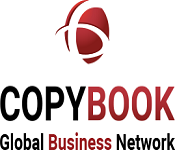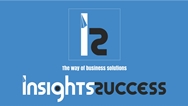Theme: Deliberate the challenges in the New era of Optimizing Medicinal Chemistry & Drug Design Research Reforms
Euro Medicinal Chemistry 2019
- About Conference
- Why to attend?
- Benefits to attend
- Who will attend?
- About Venue
- Sessions and Tracks
- Market Analysis
- Past Conference Report
The Organizing Committee of Medicinal Chemistry Conferences is inviting you to attend Euro Medicinal Chemistry Congress 2019 in April 01 - 02 | Prague, Czech Republic. The topic of the current year's gathering is "Deliberate the challenges in the New era of Optimizing Medicinal Chemistry & Drug Design Research Reforms" which will give a worldwide stage to talk of present and future of Medicinal Chemistry and research.
Meet leading Medicinal Chemists, Drug Discovery Scientists, Organic Chemists, Pharma Experts, Pharmacologists, Toxicologists at Medicinal Chemistry Conferences, Prague Medicinal Chemistry Conferences, Pharmaceutical Technology Conferences, Europe, USA, UK, China Japan Medicinal Chemistry Conferences held during April 01-02, Prague, Czech Republic.
Medicinal chemistry and pharmaceutical chemistry are disciplines at the intersection of chemistry, especially synthetic organic chemistry, and pharmacology and various other biological specialties, where they are involved with design, chemical synthesis and development for market of pharmaceutical agents, or bio-active molecules (drugs).
Euro Medicinal Chemistry 2018 gathering will empower us to continue plunging further into the research of medicinal chemistry for developing new strategies for optimizing the biological, pharmacological, toxicological, and metabolic profiles of drug leads and drug candidates. From around the world, top medicinal chemists, and drug discovery & development experts will meet and the largest networking will be happening at Medicinal Chemistry Conference 2019.
Our Conferences on Medicinal Chemistry joins medicinal chemists, scientists, professors, scholars, students’ authorities, industrialists, pharma experts, CEOs & CROs from around the world. Medicinal Chemistry experiences an exponential improvement over the coming couple of years. In today’s discovery environment there is no question that the medicinal chemist needs to be more versatile than ever before and be able to work across scientific boundaries. Recently, pharmaceutical R&D companies have been narrowing their therapeutic area focus and concentrating on discrete molecular targets which is paving way for intense medicinal chemistry research. Hence Euro Medicinal Chemistry 2019 will be an excellent platform to share all the diverse and unique research findings.
Euro Medicinal Chemistry 2019 intrigues your every idea on medicinal chemistry and is focused on getting all your concerns answered. This gathering would be your single most obvious opportunity to accomplish your greatest ideas of sharing your views on medicinal chemistry research and improve your networking with professionals of medicinal chemistry research and its interrelated fields.
This year’s flagship event will gather top Europe Associations, Societies, Companies, Laboratories, Global regulators, Officials, Healthcare Actors as well as Industry leaders, to foster open exchange and debate on the role of the Medicinal Chemistry in drug discovery and the deliberations of the conference will be revolving around the theme “Euro Medicinal Chemistry 2019: "Deliberate the challenges in the New era of Optimizing Medicinal Chemistry & Drug Design Research Reforms"
Euro Medicinal Chemistry 2019 gives a complete 360-degree overview on Medicinal Chemistry along with information on Drug Design, Drug Discovery and Drug Development. Participants will leave the conference with a wealth of current information and an expanded network of contacts.
Medicinal chemistry and pharmaceutical chemistry are disciplines at the intersection of chemistry, especially synthetic organic chemistry, and pharmacology and various other biological specialties, where they are involved with design, chemical synthesis and development for market of pharmaceutical agents, or bio-active molecules (drugs).
Drug Development is a lucrative sector owing to recent regulatory approvals and increasing opportunities. Medicinal Chemistry is at distinct stages of evolution across the globe. Developing a new drug candidate demands huge investment, time, research, technical capabilities and clinical trial expertise. To unlock all the potential strategies in drug development, the industry will entail focus along the whole value chain, from optimizing the time, cost, development needs of drug development to clinical development program and there to commercialization and marketing.
Medicinal Chemistry conferences developments are maintaining their momentum and the Medicinal Chemistry Conference 2019 program delves into strategic discussions regarding:
- Market and regulatory developments in the Europe and globally, enlightened by the perspective of drug development experts, industrialists, healthcare professionals and patient’s experiences
- Medicinal Chemistry research and drug discovery practice - what can be learned from the emerging data?
- The impact of Medicinal Chemistry on the competitive landscape of drug candidates
- Developing novel drug molecules and new drug entities
- Innovator Pharmaceutical Products
- Current Challenges and Research trends in the development of drug development
- Medicinal Chemistry: Drug Discovery, Drug Design & Drug Development
- Toxicology and Pharmacology of drugs
- Biopharmaceutical
- Biological Medicines
- Bioequivalence Assessment
- Organic Chemistry and Analytical Chemistry
- Integrating Medicinal Chemistry into Drug Discovery
- Medicinal Chemistry Advances
- QC, R&D, Analysis, and other techniques
- Innovation and Technology for Drug Development
- Intellectual Property Rights
- Novel Drug Delivery Technologies
- Pharmacology and Drug Development
- Pharmaceutical Formulation
- CADD, SBDD, FBDD
- Pharmaceutical Industry
Learning objectives
- Update the participants on the current knowledge including regulatory and scientific thinking in drug development.
- Deal with research requirements, scientific and operational challenges in drug discovery and development
- Exchange experiences and discuss hot topics with experts
- Frame the current issues and create dialogue
Key Features
- Meeting Regulatory expectations
- Devise Strategies
- Explore different statistical approaches to demonstrate with the reference product
- Panel Discussion and Extended Q&A Sessions
- Open forum to discuss your most critical questions around Medicinal Chemistry and its advances.
- Network of National & International Speakers
- Networking with National and International Industry stalwarts who will inspire, educate and engage in all the aspects of Medicinal Chemistry.
- Gain insights and enhance your knowledge on medicinal chemistry along with all the strategies of drug development.
- Provides interaction with the world's well-known CEO's and Directors of the Pharmaceutical companies.
Benefits to attend Euro Medicinal Chemistry 2019
- Keynote presentation along with interactions to galvanize the scientific community.
- Workshop and symposiums to reach the largest assemblage of participants from the Pharma and Chemistry community.
- A wide track of exhibitors to showcase the new and emerging technologies.
- Platform to global investment community to connect with stakeholders in Pharma and Chemistry sector.
- Young Scientist/ Investigators Award geared towards best budding young research.
- Links to the political marketing resources to expand your business and research network.
- Triumph of Awards, Certificates recognizes your commitment to your profession to encourage the nascent research.
Euro Medicinal Chemistry 2019 Benefits:
Open board exchanges: Providing an open gathering with specialists from the scholarly world and business to talk about on current difficulties in Medicinal Chemistry and Drug Development, where all participants can collaborate with the board took after by a Q&A session.
Speaker and notice introductions: Providing a stage to all academicians and industry experts to share their exploration contemplations and discoveries through a discourse or a publication introduction.
Editorial executive gathering: Discussing on development and advancement of direct access Medicinal Chemistry and Drug Development International Journals and enlisting board individuals and analysts who can bolster the diary.
Round table gatherings: Providing a stage where industry experts meet scholastic specialists.
Business and Exhibitor Benefits:
Over 50+ organizations and international pavilions will be exhibiting at the Euro Medicinal Chemistry 2019. Exhibitors will include equipment manufacturers and suppliers, systems providers, finance and investment firms, R&D companies, project developers, trade associations, and government agencies.
In addition to the products and services you will have access to valuable content, including Keynote Presentations, Product Demonstrations and Educational Sessions from today’s industry leaders.
The Euro Medicinal Chemistry 2019 has everything you need, all under one roof, saving you both time and money. It is the event you cannot afford to miss!
Target Audience:
- Scientists and Researchers
- Directors, CEO’s of Pharmaceutical and Chemical Organizations
- Scholars from Pharmacology, Pharmaceutical, Toxicology backgrounds
- PhD Scholars
- Drug Delivery Technology Manufacturers
- Business Development Managers
- Distributors and Suppliers of Drug Delivery Technologies
- Students, Professors, Researchers, and Faculty of Medicinal Chemistry & Pharmaceutical Sciences from Universities and Medical Colleges
- Researchers from Pharmaceutical Companies, Pharmacy, Pharmacology & Chemical Associations and Societies
- Health professionals
- Pharmacists, Pharmacologists, & Toxicologists
- Business development professionals, Consultants, Pharma, and Toxicology Testing service providers
- Quality control specialists
- Graduates and post graduates in industrial pharmacy
- Medical Devices Manufacturing Companies, CRO
- Data Management Companies.
- Pharmaceutical legislators and regulators
- Drug Delivery Companies & Organizations
Major Marketing Associations around the Globe:
- American Association for Clinical Chemistry
- American Chemical Society
- American Institute of Chemists (AIC)
- American Society of Brewing Chemists
- American Society for Mass Spectrometry
- Royal Society of Chemistry (RSC)
- Swedish Chemical Society
- New Swiss Chemical Society
- Syngenta, Hyderabad Area, India
- DCTG, Beijing City, China
- Oceanus Group Ltd, Singapore
Major Marketing Associations in USA:
- American Association for Clinical Chemistry
- American Chemical Society
- American Institute of Chemists (AIC)
- American Society of Brewing Chemists
- American Society for Mass Spectrometry
About Venue
Prague is the largest capital city in the Czech Republic. Prague is viewed one of the most historical place in the Eastern Europe and historical capital of Bohemia situated near to North West of Vltava river. while urban zone area is expected to 2.2 million people. Prague is said to be a political, cultural and economic center with a rich history. Prague is traditionally one of the cultural centers of Europe, hosting many cultural events. The city played major roles in the Bohemian and Protestant Reformation.
Prague mission is to stand-in the development of each domestic and international business enterprise in Czech. Prague is one of the best tourism enriched culture city .it has many world famous attractions like Prague castle which is symbol of heritage and culture of city and many famous places like oldest bridge called as Charles bridge old town hall with astronomical clock and other historical places like Jewish museum and church of our lady and most important towers of Prague and recreation places like Kampa park ,municipal house , rasanova nabrezi embankment, and one of the modern monument dancing house .Prague climate is very cold climate at winters and little summer season.
Prague is well known for its Christmas celebrations and it also have many brewing industries. Prague occupy 25% GDP rate making it the highest performing regional economy of the country. Prague holds many multinational and international companies. Prague has around 12 universities and the city of Prague is hub for research. It is the educational hub and holds around 39 out of 54 institutes of the Czech Academy of Sciences, including the major ones, the Institute of Physics, the Institute of Microbiology and the Institute of Organic Chemistry and Biochemistry. Czech Republic grips finest position in abroad for unifying educational trips, workshops, and presentations.
Prague is a destination that is forever fashionable. It’s been on the traveler map for a protracted time, and the crowds show no signs of subsiding. Town holds a special place in my heart not simply because it absolutely was the primary international city with however additionally because of its fairy-tale landscapes, romantic streets, charming suites and aesthete architectures.
Prague Currency is called koruna. It accepts Euros also. The approximate value of 100 CZK is 4 EUR/5 USD you can exchange in local markets.
Prague city is known to be the food pivots in Europe. Many beer and wine industries are greater worth in global market.
Prague in April
There are loads of things to do here including climbing or riding the funicular to the top for the panoramic views and climbing to the top of the PetÅ™ín Tower for even better views. For a more relaxed day out, you can also admire the statue of the great Czech romantic poet Karel Hynek Mácha, explore the observatory and wander through the rose garden. Families with children will have great fun in the Mirror Maze and pony rides which take place daily throughout April. Art lovers won't want to miss the chance to see the Troja Chateau during their holiday in Prague. Located in an outer suburb in the north of the city, this luxury baroque palace is surrounded by gardens and vineyards which are overflowing with exotic plant life that will be beginning to bloom in April.
Climate
Prague flourishes in spring. This begins in the second half of March when temperatures rise above freezing, the snow starts to melt, and the first flowers appear. At the beginning of March, temperatures can still sometimes drop a bit below freezing. April in the Czech Republic is quite unpredictable and can change from sunny to snowy in a matter of minutes. It can also get windy and temperatures can vary quite a bit. Main events in spring include St. Patrick’s Day in March, the Easter Markets in April.
Track 01: Emerging Drug Targets:
In the early days of drug discovery, medicinal chemists often optimized and developed compounds without much knowledge of the drug target or pathway in mind. Modern technologies have had an enormous impact on drug discovery since the mid-20th century. The early influence of experimental pharmacology, which was first employed to study drug side-effects, coupled with advances in cell biochemistry led to the identification of many enzymes and receptors as new drug targets, thus enabling medicinal chemists to develop compounds to interact selectively with targets for a wide range of therapeutic areas. Medicinal chemistry therefore has fully-fledged to comprehend a wider range of scientific disciplines in the process of drug discovery, there by leading to minimize the cost of drug development, the time during the process of development and the risks of drug development. The current meeting of chemistry conferences will be a multinational gathering and present majorareas such as Medicinal Chemistry, Pharmaceutical Sciences, Pharmaceutical Chemistry, Pharmaceutical Technology.
Sub Tracks:
- Targeted Protein Degradation
- DNA Encoded Libraries
- Hit-to-Lead Optimization
- Predictive Toxicology – Improving Compound Safety
- Optimizing Outsourcing Activities
- Artificial Intelligence in Medicinal Chemistry
- Small Molecule Immuno-Oncology
Related Conferences: Medicinal Chemistry Conferences | Pharmaceutical Conferences | Pharmaceutical Technology Conferences | Medicinal Chemistry 2018 | International Chemistry Conferences | Medicinal Chemistry Meetings | Medicinal Chemistry Events | Pharmaceutical Meetings | Pharmaceutical Technology Meetings | Chemistry Conferences | Chemistry Meetings | Chemistry Congress | Drug Events
Track 02: Drug Discovery Chemistry:
The discovery of candidate drug targets is challenging, requiring the rapid development of techniques to identify the difference genomic profiling in disease and normal conditions, which will facilitate the understanding of the disease mechanism and the development of potential drugs for disease treatment. Medicinal chemistry has increasingly employed microarrays to identify both key target genes and gene networks that can regulate the effectiveness of drugs. As compared with all the other phases in drug discovery, this stage is complex by the fact that the identified drug target must mollify a variety of standards to permit development to the next step. For example, the target must be selectively present in the pathogen, i.e. medicinal chemistry along with coding genes of drug design target that are preserved across different pathogens and have no human homologs and therefore they represent striking target candidates for new broad-spectrum drugs. The current meeting of chemistry conferences will be a multinational gathering and present majorareas such as Medicinal Chemistry, Pharmaceutical Sciences, Pharmaceutical Chemistry, Pharmaceutical Technology.
Sub Tracks:
- Fragment-Based Drug Discovery
- Macrocyclics & Constrained Peptides
- Biophysical Approaches for Drug Discovery
- Small Molecules for Cancer Immunotherapy
- Inflammation Inhibitors
- Protein-Protein Interactions
- GPCR-Targeted Drug Design
- Blood-Brain Penetrate Inhibitors
- Kinase Inhibitor Chemistry
Related Conferences: Medicinal Chemistry Conferences | Pharmaceutical Conferences | Pharmaceutical Technology Conferences | Medicinal Chemistry 2018 | International Chemistry Conferences | Pharmaceutical Meetings | Pharmaceutical Technology Meetings | Medicinal Chemistry Meetings | Medicinal Chemistry Events | Chemistry Conferences | Chemistry Meetings | Chemistry Congress | Drug Discovery Conferences
Track 03: Chemogenomics:
Chemogenomics is an emergent discipline that combines the latest tools of genomics and chemistry and applies in the discovery of novel drug molecules thereby to target drug discovery. Because of the almost infinite number of drug-like organic molecules, this is an impossible task. Chemogenomics, on the other hand can be defined as the investigation of classes of compounds or related libraries. These compounds are meant to work against families of functionally related proteins in the protein structure. Chemogenomics also deals with the chemical-biological interactions and their systematic analysis. The current meeting of chemistry conferences will be a multinational gathering and present majorareas such as Medicinal Chemistry, Pharmaceutical Sciences, Pharmaceutical Chemistry, Pharmaceutical Technology.
Sub Tracks:
- Biomolecules
- Preparation of Natural products
- Metal Complexes creation
- Asymmetric synthesis
- Organometallic chemistry
- Nucleotide chemistry
- Chemogenomics and Chemical Biology for Target Identification and Validation
- Assemblies of macrolide-mimetics
- Spiro– medium- and large(macro) heterocyclic systems
- Isosteric replacements of amino acids, di-/tri-peptides
Related Conferences: Medicinal Chemistry Conferences | Pharmaceutical Conferences | Pharmaceutical Technology Conferences | Medicinal Chemistry 2018 | International Chemistry Conferences | Pharmaceutical Meetings | Pharmaceutical Technology Meetings | Medicinal Chemistry Meetings | Medicinal Chemistry Events | Chemistry Conferences | Chemistry Meetings | Chemistry Congress | Chemogenomics Conferences
Track 04: Medicinal Chemistry Strategies:
In the drug discovery and drug development of a new drug, different terms are assigned to the substances that are studied at different steps in the process. Only if a substance fulfills the requirements for a certain level is it subjected to testing on the next level. The process starts with a compound which is a chemical substance of defined chemical structure and purity. There are many strategies developed in Medicinal Chemistry in the recent years for the development of new drug candidates. Compounds that show specific binding properties and are active are referred to as ‘hits’ and are further validated; this includes verifying their chemical identity and purity and determining their binding properties in one or more secondary assays. The current meeting of chemistry conferences will be a multinational gathering and present majorareas such as Medicinal Chemistry, Pharmaceutical Sciences, Pharmaceutical Chemistry, Pharmaceutical Technology.
Sub Tracks:
- ADCs – Targeted delivery
- Immuno-oncology
- Small-molecule targeting of RNAs
- Preventative Toxicology
- Molecules with predictable in vivo and safety profiles
- Phenotypic screening
- SBDD Case studies
- Macrocyclic compounds
Related Conferences: Medicinal Chemistry Conferences | Pharmaceutical Conferences | Pharmaceutical Technology Conferences | Medicinal Chemistry 2018 | Pharmaceutical Meetings | Pharmaceutical Technology Meetings | International Chemistry Conferences | Medicinal Chemistry Meetings | Medicinal Chemistry Events | Chemistry Conferences | Chemistry Meetings | Chemistry Congress | Medicinal Chemistry Symposiums
Track 05: CADD (Computer Aided Drug Design):
Computational methods of drug design are based on a postulate that pharmacologically active compounds act by interaction with their macromolecular targets, mainly proteins or nucleic acids. Major factors of such interactions are surfaces of molecules, electrostatic force, hydrophobic interaction and hydrogen bonds formation. The channel of drug discovery from idea to market consists of seven basic steps: disease selection, target selection, lead compound identification, lead optimization, pre-clinical trial testing, clinical trial testing and pharmacogenomic optimization. In practice, the last five steps required to pass repeatedly. The current meeting of chemistry conferences will be a multinational gathering and present majorareas such as Medicinal Chemistry, Pharmaceutical Sciences, Pharmaceutical Chemistry, Pharmaceutical Technology.
Sub Tracks:
- Receptor theory
- Molecular Modeling and Computational Chemistry
- Quantum Mechanics and Molecular Mechanics
- Steepest Descent Method
- Conjugate Gradient Method
- Structure-Based Computer-Aided Drug Design
- Ligand-Based Computer-Aided Drug Design
- Molecular Docking
- Database Searching
- de novo Drug Design
Related Conferences: Medicinal Chemistry Conferences | Pharmaceutical Meetings | Pharmaceutical Technology Meetings | Pharmaceutical Conferences | Pharmaceutical Technology Conferences | Medicinal Chemistry 2018 | International Chemistry Conferences | Medicinal Chemistry Meetings | Medicinal Chemistry Events | Chemistry Conferences | Chemistry Meetings | Chemistry Congress | CADD Events
Track 06: Bioanalytical Sciences and Organic Synthesis:
Bioorganic chemistry involves the study of biological processes using chemical methods. Organic chemistry methods are used to synthesize biological molecules and to examine their structure, to investigate biochemical reactions. In synthetic organic chemistry the synthesis is implying to the aspect of a planned sequent route resulting in products with desired activity.
Sub Tracks:
- Bioanalytical Techniques
- Hyphenated Techniques
- Chromatography Methods
- Electrophoresis
- Ligand Binding Assays
- Mass Spectrometry
- Nuclear Magnetic Resonance
- Sample preparation and extraction
- Natural Products Synthesis
- Synthetic methodology
- Catalysis
- New synthetic technologies
- Medicinal Chemistry and Chemical Biology
- Synthesis of nano and functionalized Materials
Related Conferences: Medicinal Chemistry Conferences | Pharmaceutical Conferences | Pharmaceutical Technology Conferences | Medicinal Chemistry 2018 | International Chemistry Conferences | Medicinal Chemistry Meetings | Medicinal Chemistry Events | Chemistry Conferences | Chemistry Meetings | Chemistry Congress | Organic Chemistry Conferences | Bioanalytical Conferences
Track 07: Enabling Technologies of Medicinal Chemistry:
Modern drug research and development (R&D) has experienced remarkable changes as technological and scientific developments in the past years have dramatically changed the pharmaceutical innovation process. Well-established strategies, such as high-throughput screening (HTS), have progressively been applied in association with novel techniques founded on genomics, molecular and structural biology and molecular modeling.
Sub Tracks:
- Targeted protein degradation / PROTACs
- DNA Encoded Libraries
- Hit-to-Lead Optimization
- Predictive Toxicology – Improving Compound Safety
- Optimizing Outsourcing Activities
- Artificial Intelligence in Medicinal Chemistry
Related Conferences: Medicinal Chemistry Conferences | Pharmaceutical Conferences | Pharmaceutical Technology Conferences | Medicinal Chemistry 2018 | Pharmaceutical Meetings | Pharmaceutical Technology Meetings | International Chemistry Conferences | Medicinal Chemistry Meetings | Medicinal Chemistry Events | Chemistry Conferences | Chemistry Meetings | Chemistry Congress | Medicinal Chemistry Technologies
Track 08: Integrating Medicinal Chemistry into the Drug Discovery Process:
Traditionally, “drug delivery” was a specialization in pharmacy for formulations of drugs. However, it is natural that organic, medicinal, materials, and nano chemistry have now become deeply involved in the development of drug delivery systems. These approaches have led to the creation of drug conjugates that are new chemical entities. The use of functional carbon nanotubes as well as designed polymers as a vehicle for drug delivery is a novel approach to drug discovery. Medicinal chemistry and pharmaceutical chemistry are disciplines at the intersection of chemistry, especially synthetic organic chemistry, and pharmacology and various other biological specialties, where they are involved with design, chemical synthesis and development for market of pharmaceutical agents, or bio-active molecules (drugs). The current meeting of chemistry conferences will be a multinational gathering and present majorareas such as Medicinal Chemistry, Pharmaceutical Sciences, Pharmaceutical Chemistry, Pharmaceutical Technology.
Sub Tracks:
- Drug Discovery Chemistry – where are we heading
- Target Validation using Medicinal Chemistry tools
- Optimizing hit to lead optimization quality and timescale
- Best Practice Case Studies
- Data for decision making
- Protein Degradation Strategies
- Future of Medicinal Chemistry
Related Conferences: Medicinal Chemistry Conferences | Pharmaceutical Conferences | Pharmaceutical Technology Conferences | Medicinal Chemistry 2018 | International Chemistry Conferences | Medicinal Chemistry Meetings | Medicinal Chemistry Events | Pharmaceutical Meetings | Pharmaceutical Technology Meetings | Chemistry Conferences | Chemistry Meetings | Chemistry Congress | Drug Discovery Conferences
Track 09: Medicinal Chemistry Advances
The main objective of medicinal chemistry has always been and still is to identify new compounds which can be used as the active principle of effective and safe medicines. The recent advances of medicinal chemistry include target classes i.e., receptors, transporters, enzymes, regulatory proteins, target-ligand interactions, structure activity relationship (SAR) studies, structure and ligand based drug design, point of action and the prodrug concept, peptidomimetics and protein based drugs, drugability of lead compounds, experimental methods in biological and biostructural chemistry, basic and advanced medicinal chemistry concepts, and also the recent concept of 3D modeling of protein structure and ligand docking.
Sub Tracks:
- Kinase Inhibitors
- Approaches to Optimization and Characterization
- Inhibitors for Rare Diseases
- Recent Advances in Screening Approaches to Lead Identification
- Novel Approaches to Anti-Infective Drug Discovery and Liver Disease
- Targeting RNA
- Macrocycles in Drug Design
- Advances in Targeting Immuno-Inflammation
- Synthesis and Applications of ADME in Drug Discovery
Related Conferences: Medicinal Chemistry Conferences | Pharmaceutical Conferences | Pharmaceutical Technology Conferences | Medicinal Chemistry 2018 | Pharmaceutical Meetings | Pharmaceutical Technology Meetings | International Chemistry Conferences | Medicinal Chemistry Meetings | Medicinal Chemistry Events | Chemistry Conferences | Chemistry Meetings | Chemistry Congress | Advanced Medicinal Chemistry Events
Track 10: Drug Design and Synthesis:
The rational development of new drugs is a complex process involving a myriad of different disciplines. In nearly all of these, computational tools serve to guide the design decisions, ultimately speeding up and reducing the cost of development. Drug design and the synthesis of new drug molecules is one of the important aspect in medicinal chemistry and it is one of the keytopics discussed at Medicinal Chemistry Conferences. In the area of medicinal chemistry, computational methods are applied both to identify new starting points and to guide the further development of promising substances.
Sub Tracks:
- Frontiers in Catalysis
- Aggressive Bond Disconnections in Total Synthesis
- Chemical Probes for Characterizing Biology
- Synthetic Biology for Natural Products
- Advances in Drug Discovery
- Natural Product Discovery and Biosynthesis
- Combining Synthesis and Biosynthesis to Construct Complex Molecules
- New Directions in Antibiotic Discovery and Development
- Accessing Complex Molecules
- Structure-biodegradability relationship
- Diversity-Oriented Synthesis
Related Conferences: Medicinal Chemistry Conferences | Pharmaceutical Conferences | Pharmaceutical Technology Conferences | Medicinal Chemistry 2018 | Pharmaceutical Meetings | Pharmaceutical Technology Meetings | International Chemistry Conferences | Medicinal Chemistry Meetings | Medicinal Chemistry Events | Chemistry Conferences | Chemistry Meetings | Chemistry Congress | Drug Design Conferences
Track 11: Organic Chemistry:
The synthesis of each molecule was first carried out on a small scale (probably milligrams) in the laboratory, followed much later by development of safe, efficient, and scalable methods to provide kilograms of active pharmaceutical ingredient (API) that was incorporated into dosage forms for administration to patients. It is critical to point out that an early step in the complex process of drug discovery was the synthesis of a molecule that tested a hypothesis faced by the project team. This required a medicinal chemist to use organic chemistry training and experience to conceive of a compound and then employ appropriate reactions to furnish the desired target and synthesize a suitable number of derivatives to optimize the spectrum of properties associated with drug like candidates. The current meeting of chemistry conferences will be a multinational gathering and present majorareas such as Medicinal Chemistry, Pharmaceutical Sciences, Pharmaceutical Chemistry, Pharmaceutical Technology.
Sub Tracks:
- Medicinal chemistry
- Drug discovery
- Total synthesis of natural products
- Heterocyclic compounds
- Synthesis and functional properties of molecules
- Asymmetric synthesis
- Green chemistry
- New reagents, strategies, catalysts and concepts for organic synthesis
- Mechanistic organic chemistry
- Computational chemistry
- Supramolecular chemistry
Related Conferences: Medicinal Chemistry Conferences | Pharmaceutical Conferences | Pharmaceutical Technology Conferences | Medicinal Chemistry 2018 | International Chemistry Conferences | Medicinal Chemistry Meetings | Medicinal Chemistry Events | Chemistry Conferences | Chemistry Meetings | Chemistry Congress | Organic Chemistry Conferences
Track 12: Chemical Synthesis and Catalysis:
From drug synthesis to quality control (QC) monitoring of over-the-counter medications, metals are found in all phases of the drug development process. Many metal-based products are used as imaging agents, and metals are used in the synthesis of drug substances, as excipients in tablets, capsules and liquids. In addition, trace metals can arise from the equipment used to manufacture a drug substance or compound. Because of the prevalence of metals associated with the drug development and manufacturing process, various atomic and emission-based techniques are often used to help fully characterize pharmaceutical products.
Sub Tracks:
- Organocatalysis
- Flow-chemistry approaches to the synthesis of key targets
- Applications of organometallic compounds in synthesis and catalysis
- Stereoselective synthesis
- Synthesis and property of functional molecules and organic materials
- Sustainable and Green synthetic and catalytic methods
- Process development of key pharmaceutical targets
- Synthesis in Medicinal chemistry and chemical biology
- Biocatalysis in synthesis
- Computational tools for synthesis and catalysis
- Polymer synthesis
Related Conferences: Medicinal Chemistry Conferences | Pharmaceutical Conferences | Pharmaceutical Technology Conferences | Medicinal Chemistry 2018 | Pharmaceutical Meetings | Pharmaceutical Technology Meetings | International Chemistry Conferences | Medicinal Chemistry Meetings | Medicinal Chemistry Events | Chemistry Conferences | Chemistry Meetings | Chemistry Congress | Drug Monitoring Conferences
Track 13: Synthetic Chemistry;
Synthetic Organic Chemistry is designed to summarize in a single volume method of organic syntheses most dependently employed in the preparation of mono- and di-functional compounds. Synthetic Chemistry is one of the main aspect in medicinal chemistry and is the keytopic discussed at Medicinal Chemistry Conferences. The methods are collected in chapters each of which is &voted to the formation of compounds containing a functional group or related groups. Medicinal chemistry and pharmaceutical chemistry are disciplines at the intersection of chemistry, especially synthetic organic chemistry, and pharmacology and various other biological specialties, where they are involved with design, chemical synthesis and development for market of pharmaceutical agents, or bio-active molecules (drugs).
- Addressing Preclinical Toxicity
- Advances in Lead Generation
- Advances in Synthetic Methods
- Alternative Modalities
- Challenges and Opportunities in Fragment Based Drug Discovery
- Chemical Biology in Drug and Target Discovery
- Drug Discovery Tales
- Late Stage Functionalization
- High pressure cryogenic reactions
- Enzymatic reactions
- Cascade addition-cyclization
- Multi-component reactions
- One-pot Syntheses
Sub Tracks:
Related Conferences: Medicinal Chemistry Conferences | Pharmaceutical Conferences | Pharmaceutical Technology Conferences | Medicinal Chemistry 2018 | Pharmaceutical Meetings | Pharmaceutical Technology Meetings | International Chemistry Conferences | Medicinal Chemistry Meetings | Medicinal Chemistry Events | Chemistry Conferences | Chemistry Meetings | Chemistry Congress | Synthetic Chemistry Conferences
Track 14: Biorganic Chemistry
Broadly defined, the discipline of bioorganic chemistry seeks an understanding of biological processes through the tools and principles of organic chemistry. Biorganic chemistry can be defined as a multifaceted field which has its historical roots in detailed mechanistic studies of enzyme along with coenzyme models. The field of bioorganic chemistry currently focuses more on the trending topics like molecular recognition, encompassing mechanistic investigations of enzymes themselves, drug design. It also deals with study of drug action, problems in biosynthesis, protein engineering, molecular evolution, supramolecular chemistry, and many other allied subjects.
Sub Tracks:
- Structural and in-Silico Chemistry
- Chemical Biology for Drug Discovery
- Pain Medications and their SAR
- Recent Advances in Targeting Autophagy
- Advances in Synthesis and Medicinal Chemistry
- Photo-redox Catalysis
Related Conferences: Medicinal Chemistry Conferences | Pharmaceutical Conferences | Pharmaceutical Technology Conferences | Medicinal Chemistry 2019 | Pharmaceutical Meetings | Pharmaceutical Technology Meetings | International Chemistry Conferences | Medicinal Chemistry Meetings | Medicinal Chemistry Events | Chemistry Conferences | Chemistry Meetings | Chemistry Congress | Bioorganic Chemistry Conferences
Track 15: Pharmaceutical Formulation
Formulation development is a key area of product development that can determine patentability, lifecycle and, ultimately, the success of a pharmaceutical product. Companies integrate formulation development functions and personnel into their product development cycle in many ways. In fully integrated large pharmaceutical companies, specific departments may exist to deal with such areas as the physical characterization of drug substances and formulation issues.
Sub Tracks:
- Design, manufacture and use of efficacious dosage forms
- Types of Formulation: Enteral, Parenteral and Topical
- Water-miscible formulations
- Other formulations
- Pesticide formulation
- Recent Developments in Dosage Form Design
- Establishing the Bioequivalence of Pharmaceutical Products
Related Conferences: Medicinal Chemistry Conferences | Pharmaceutical Conferences | Pharmaceutical Technology Conferences | Medicinal Chemistry 2019 | International Chemistry Conferences | Medicinal Chemistry Meetings | Medicinal Chemistry Events | Chemistry Conferences | Chemistry Meetings | Chemistry Congress | Pharmaceutical Chemistry Conferences | Pharmaceutical Conferences
Track 16: Applications of ADME in Drug Discovery:
The sighting of new drugs molecules can be mainly classified into two main stages divided into two stages i.e., the discovery of the drug molecule and then the development of the same. Drug discovery includes producing a hypothesis of the target receptor for a specific disease or disorder. This also includes the screening of the in vitro and/or the in vivo biological activities of the new drug candidates or the new drug profiles that are being developed. Drug development involves the assessment of efficacy and toxicity of the new drug candidates. Pharmacokinetic data provides all the information regarding the drug candidates that can guide future animal and clinical studies for the selection of the dose levels and thereby helps us to know the frequency of administration. The current meeting of chemistry conferences will be a multinational gathering and present majorareas such as Medicinal Chemistry, Pharmaceutical Sciences, Pharmaceutical Chemistry, Pharmaceutical Technology.
Sub Tracks:
- ADME (adsorption, distribution, metabolism and excretion)Of drugs
- Metabolism and toxicology
- Antiviral and antimicrobial activity
- Drug receptor interaction
- Kojic acid as a tyrosine inhibitor
- Components of ADME
- Pharmacokinetics and process of ADME
Related Conferences: Medicinal Chemistry Conferences | Pharmaceutical Conferences | Pharmaceutical Technology Conferences | Medicinal Chemistry 2018 | Pharmaceutical Meetings | Pharmaceutical Technology Meetings | International Chemistry Conferences | Medicinal Chemistry Meetings | Medicinal Chemistry Events | Chemistry Conferences | Chemistry Meetings | Chemistry Congress | Drug Delivery Conferences
Track 17: Analytical Chemistry:
Analytical chemistry helps in facilitating the investigation of biological targets and drug metabolism. The field of analytical chemistry helps us to provide the new insights into how molecular properties affect biological profile of the drug candidates and to underpin the biotherapeutic approaches like purification, quality assurance of the discovered drug molecules. Techniques for biomarker identification and detection and probe design (mass spectrometry, PET, SPECT, MRI, labelling). Biophysical techniques for screening and target validation.
Related Conferences: Medicinal Chemistry Conferences | Pharmaceutical Conferences | Pharmaceutical Technology Conferences | Medicinal Chemistry 2018 | Pharmaceutical Meetings | Pharmaceutical Technology Meetings | International Chemistry Conferences | Medicinal Chemistry Meetings | Medicinal Chemistry Events | Chemistry Conferences | Chemistry Meetings | Chemistry Congress | Analytical Chemistry Conferences
Sub Tracks:
- Analytical Techniques for Clinical Chemistry
- Chemical Analysis
- Electrochemical Analysis
- Spectroscopy
- Separation Techniques
Track 18: Pharmaceutical Industry:
Medicinal chemistry as a discipline is alive and well in both academic and industrial quarters. However, is it making the same kind of impact that was witnessed in the golden era of drug discovery, estimated as 1975–2000? In the first half of that period, the marriage of the medicinal chemist and the pharmacologist was a key driving force for a research project, often leading to useful, new medicines. The scientific prowess, creativity, insight and intuition of these researchers were crucial attributes for success. As the drug-discovery process became increasingly complex and ponderous, and as modern technologies entered the picture, the chemist–pharmacologist axis, so to speak, became increasingly diluted. The current meeting of chemistry conferences will be a multinational gathering and present majorareas such as Medicinal Chemistry, Pharmaceutical Sciences, Pharmaceutical Chemistry, Pharmaceutical Technology.
Sub Tracks:
- Foundation in Paediatric Pharmaceutical Care
- Equipment and Technologies for the Pharmaceutical Industry
- Validation & Transfer of Methods for Biopharmaceutical Analysis
- Stability and Shelf-life of Pharmaceuticals
- Pharmaceutical Microbiology
- Corporate Compliance & Transparency in the Pharmaceutical Industry
Related Conferences: Medicinal Chemistry Conferences | Pharmaceutical Conferences | Pharmaceutical Technology Conferences | Medicinal Chemistry 2018 | International Chemistry Conferences | Pharmaceutical Meetings | Pharmaceutical Technology Meetings | Medicinal Chemistry Meetings | Medicinal Chemistry Events | Chemistry Conferences | Chemistry Meetings | Chemistry Congress | Pharmaceutical Conferences | Pharma Meetings | Pharma Events
Track 19: Pharmacology and Toxicology:
Safety pharmacology studies are applied to marketed pharmaceuticals when adverse clinical events occur. It is applied for a new patient population and when a new route of administration raises concerns not previously addressed. In the design of toxicology, kinetic and clinical studies, some safety pharmacology endpoint can be incorporated.
Toxicology studies the interaction between biological systems and chemicals to determine the adverse effects in organisms that are caused by the potential of chemicals. Toxicology can be defined as the study of the adverse effects of chemicals, pharmaceutical chemicals or any other physical agents on living organisms. They may occur at various levels within the body, from cellular level to organ level and can affect the organism or sometimes a specific biochemical.
- Rational Prescribing
- Adverse drug effects
- Drug interactions
- Drug Development
- Pharmacogenomics
- Structure-guided Drug Design
- Molecular Cloning of Drug Targets
- Cellular Basis of Pharmacokinetics
- Cellular Basis of Pharmacokinetics
- Receptors and Modulation of Their Response
- Drug–Receptor Interactions
- G-Protein-Coupled Receptors
- Pharmacology of Transcription
- Intercellular communication
- Pharmacology of defense process
Sub Tracks:
Related Conferences: Medicinal Chemistry Conferences | Pharmaceutical Conferences | Pharmaceutical Technology Conferences | Medicinal Chemistry 2018 | Pharmaceutical Meetings | Pharmaceutical Technology Meetings | International Chemistry Conferences | Medicinal Chemistry Meetings | Medicinal Chemistry Events | Chemistry Conferences | Chemistry Meetings | Chemistry Congress | Pharmacology Conferences | Toxicology Conferences
Track 20: Organic and Medicinal Chemistry Technologies for Drug Discovery:
The recent changes in the way that synthetic chemistry is practiced in this environment center around new scientific advances in synthetic techniques and modern technologies for rational drug design, combinatorial chemistry, automated synthesis, and compound purification and identification. In addition, with the beginning of high-throughput screening, we are now dealing with many targets being screened and many other hits that are being evaluated. However, success in the discovery of new drug molecules requires more and more skilled medicinal chemists to make the accurate choices with the insights gathered from interactions with computational chemists along with the insights from structural biologists, about which “hits” are likely to play out as true “lead” structures that will meet the plethora of hurdles that any drug candidate must surmount.
Sub Tracks:
- Virtual Screening
- Target Structure-Based Design
- QSAR (Quantitative Structure-Activity Relationship)
- Fragment-Based Drug Design
Related Conferences: Medicinal Chemistry Conferences | Pharmaceutical Conferences | Pharmaceutical Technology Conferences | Medicinal Chemistry 2018 | International Chemistry Conferences | Medicinal Chemistry Meetings | Medicinal Chemistry Events | Pharmaceutical Meetings | Pharmaceutical Technology Meetings | Chemistry Conferences | Chemistry Meetings | Chemistry Congress | Organic Chemistry Conferences | Pharmaceutical Chemistry Conferences
Track 21: Pharmaceutical Technology and Research
Research and Development can be defined as innovative and experimental work undertaken on a systematic basis to increase the stock of knowledge including search of new molecules, synthesis and modification of known molecules and some methods to increase production rate by adopting diverse techniques. Superior quality R&D work requires an excellent back up from what are called the support functions. These include analytical, information services and technology, intellectual property and regulatory affairs. These are some of the main considerations in Pharmaceutical Technology and for the development of new drug candidates. The management of these functions, especially the laboratory based analytical service, requires many of the skills associated with core R&D and will therefore not be treated separately in any detail, except to point out their relationship and role within the organization.
Sub Tracks:
- Challenges in Pharmaceutical Formulations
- Scope of Pharmaceutical Research
- Pharmaceutical Research & Development
- Pharmaceutical Packaging and labeling
- Pharmaceutical industry
- Bioinformatics and Computational Biology
- Pharmaceutical Technology Assessment
- Quality assurance
- Opportunities in Pharmaceutical Management
- Pharmaceutical Chemistry
- Ethnopharmacology
Related Conferences: Medicinal Chemistry Conferences | Pharmaceutical Conferences | Pharmaceutical Technology Conferences | Medicinal Chemistry 2018 | International Chemistry Conferences | Medicinal Chemistry Meetings | Medicinal Chemistry Events | Pharmaceutical Meetings | Pharmaceutical Technology Meetings | Chemistry Conferences | Chemistry Meetings | Chemistry Congress | Organic Chemistry Conferences | Pharmaceutical Chemistry Conferences
Track 22: Recent Advances in Pharmaceutical Technology
The pharmaceutical industry channels an important proportion of total research in most developed countries. In Europe, for example, it represents about 13% of total R&D. In recent years, pharmaceutical companies have been accused of devoting their resources mainly to minor improvements over existing medications that require short clinical trials and have a small risk of not being approved. The support functions were an integral part of a large company’s R&D function but nowadays they are most likely to be outsourced under contract to external organizations specializing in a specific service, especially if these activities are not seen to offer a competitive advantage to the company. Medicinal chemistry and pharmaceutical chemistry are disciplines at the intersection of chemistry, especially synthetic organic chemistry, and pharmacology and various other biological specialties, where they are involved with design, chemical synthesis and development for market of pharmaceutical agents, or bio-active molecules (drugs).
Sub Tracks:
- Recent Development of Pharmaceutical Materials
- Recent developments In Pharmaceutics & Biopharmaceutics
- Advancements in Pharmaceutical Biotechnology
- Approaches in Pharmaceutical Nanotechnology
- Innovations in Pharmaceutical Technology
- Advancements in Pharmaceutical Manufacturing
- Development in Pharmaceutical Engineering
- Pharmacological Technology advances
Related Conferences: Medicinal Chemistry Conferences | Pharmaceutical Conferences | Pharmaceutical Technology Conferences | Medicinal Chemistry 2018 | International Chemistry Conferences | Medicinal Chemistry Meetings | Medicinal Chemistry Events | Pharmaceutical Meetings | Pharmaceutical Technology Meetings | Chemistry Conferences | Chemistry Meetings | Chemistry Congress | Organic Chemistry Conferences | Pharmaceutical Chemistry Conferences
Track 23: Pharmaceutical Technology and Pharmaceutics
The practice of making drugs and medicines for consumers. Pharmaceutical manufacturing workers create medicines from basic ingredients and synthesized materials. Most manufacturing workers work for large pharmaceutical companies and mix ingredients and package medicines for delivery. They are several types of drug administration and they can be mainly classified into parenteral, sublingual, inhalation, oral, transdermal, topical, and rectal. The route of administration depends upon the bioavailability of the drug. Medicinal chemistry and pharmaceutical chemistry are disciplines at the intersection of chemistry, especially synthetic organic chemistry, and pharmacology and various other biological specialties, where they are involved with design, chemical synthesis and development for market of pharmaceutical agents, or bio-active molecules (drugs).
Sub Tracks:
- Pharmaceutics and Pharmaceutical Technology
- Insights of Pharmacology and Pharma Engineering
- Advances in Bioavailability and Bioequivalence
- Advancements in Drug Targeting & Drug Development
- Innovation in Drug Delivery Technologies
- Industrial Pharmacy
- Hospital Pharmacy
- Clinical Pharmacy
- Biosimilars & Regulatory Affairs
- Pharmacovigilance and Drug Safety
- Pharmaceutical Nanotechnology
Related Conferences: Medicinal Chemistry Conferences | Pharmaceutical Conferences | Pharmaceutical Technology Conferences | Medicinal Chemistry 2018 | International Chemistry Conferences | Medicinal Chemistry Meetings | Medicinal Chemistry Events | Pharmaceutical Meetings | Pharmaceutical Technology Meetings | Chemistry Conferences | Chemistry Meetings | Chemistry Congress | Organic Chemistry Conferences | Pharmaceutical Chemistry Conferences
Track 24: Frontiers in Drug Development
There are various delivery approaches that can be used to maximize therapeutic efficacy and minimize side effects, by impacting absorption, distribution, metabolism, and elimination (ADME) of a drug compound. For those drugs with poor water solubility or low permeability, techniques such as amorphous solid dispersion, liposomes, and complexations have been used to improve their oral bioavailability. Modified release (MR) formulations have been widely used to improve patient compliance, as well as to reduce side effects, especially for those drugs with short half-lives or narrow therapeutic windows.
Sub Tracks:
- Drug Discovery and Development
- Pharmacoeconomics
- Nanomedicine and Nanotechnology
- Clinical Pharmacology and Therapeutics
- Applications of Polymers
- Clinical Data Management
- Pharmacoepidemiology
Related Conferences: Medicinal Chemistry Conferences | Pharmaceutical Conferences | Pharmaceutical Technology Conferences | Medicinal Chemistry 2018 | Pharmaceutical Meetings | Pharmaceutical Technology Meetings | International Chemistry Conferences | Medicinal Chemistry Meetings | Medicinal Chemistry Events | Chemistry Conferences | Chemistry Meetings | Chemistry Congress | Organic Chemistry Conferences | Pharmaceutical Chemistry Conferences
Track 25: Advances in Drug Delivery
Drug delivery systems can be referred as engineered technologies used for the targeted delivery. Drug Delivery systems are intended to achieve controlled and prolonged release of therapeutic agents to produce intended efficacy. The search for innovative approaches of drug delivery and new modes of action is a rapidly developing field. Many small molecule drugs (eg: aspirin) are associated with non-specific action, toxicity, efficacy only at high concentrations, a narrow therapeutic index, and a short half-life. On the other hand, peptide (eg: glucagon-like peptide) and protein (eg: erythropoietin) drugs are potent, specific in action and less toxic. Medicinal chemistry and pharmaceutical chemistry are disciplines at the intersection of chemistry, especially synthetic organic chemistry, and pharmacology and various other biological specialties, where they are involved with design, chemical synthesis and development for market of pharmaceutical agents, or bio-active molecules (drugs).
Sub Tracks:
- Pre-formulation and Formulation Studies
- Novel Drug Delivery Systems
- Biomaterials and Drug Delivery Systems
- Medical Devices for Drug Delivery Systems
- Immunopharmacology and Immunotoxicology
- Bioinformatics and Computational Biology
- Smart Drug Delivery Systems
- Advancement in Drug Regulatory Affairs
Related Conferences: Medicinal Chemistry Conferences | Pharmaceutical Conferences | Pharmaceutical Technology Conferences | Medicinal Chemistry 2018 | International Chemistry Conferences | Medicinal Chemistry Meetings | Medicinal Chemistry Events | Pharmaceutical Meetings | Pharmaceutical Technology Meetings | Chemistry Conferences | Chemistry Meetings | Chemistry Congress | Organic Chemistry Conferences | Pharmaceutical Chemistry Conferences
Importance & Scope
Medicinal chemistry is a stimulating field as it links many scientific disciplines and allows for collaboration with other scientists in researching and developing new drugs.
Medicinal chemists apply their chemistry training to the process of synthesizing new pharmaceuticals. They also improve the processes by which existing pharmaceuticals are made. Medicinal chemists are focused on drug discovery and development and are concerned with the isolation of medicinal agents found in plants, as well as the creation of new synthetic drug compounds. Most chemists work with a team of scientists from different disciplines, including biologists, toxicologists, pharmacologists, theoretical chemists, microbiologists, and biopharmacists. Together, this team uses sophisticated analytical techniques to synthesize and test new drug products and to develop the most cost-effective and environmentally friendly means of production.
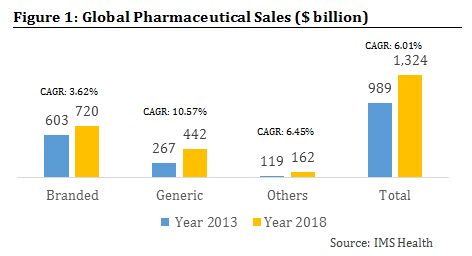
Medicinal Chemistry for Drug Discovery Market: Overview
Over the last decade, industry’s productivity has been declining with rising R&D costs and time taken to reach market. Medicinal chemistry is defined as a focused science that is developed to cover a wide range of fields related with identification, synthesis and drug development for therapeutic applications. This science has evolved from medical chemists focusing on drug target or pathway in mind and league of elaborative chemistry-driven processes to modern generation of high-throughput screening (HTS) libraries that are created by combinatorial chemistry based on few structural distinctions across large drug like scaffolds.
This change was needed because of high attrition rate in pre-clinical and incubation drug development studies because of earlier methods. While the primary task of medicinal chemists has not changed significantly over a period of time, the computational tools and chemicals and perspectives at their clearance or removal have advanced extensively.
The various tools of medicinal chemistry are in silico modeling, structure-based drug design (SBDD), comparative molecular field analysis (CoMFA) or 3D QSAR method. The fragment-based drug design promisingly stands out because of substantial improvements in research and productivity. One of the primary challenges of drug discovery is to design a robust drug that is both safe and effective in a wide range of population. The various drug designing types are structure-based drug design, natural products-based drug design, fragment-based drug design, diversity-oriented synthesis and chemogenomics.
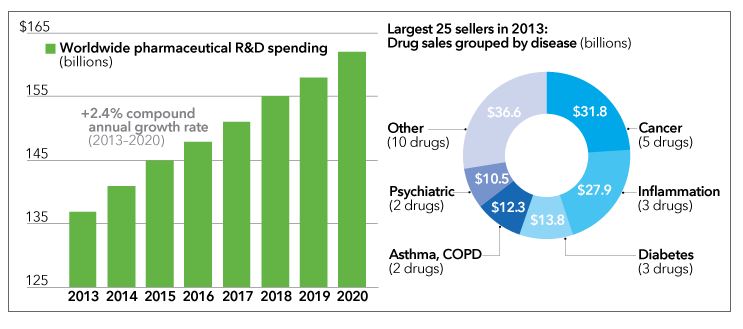
Medicinal Chemistry for Drug Discovery Market: Trends
Due to modern technology an alternative approach to the large combichem libraries (10,000 plus molecules) is available, these are smaller focused arrays known as chemogenetic arrays that assists for confining of specific pharmacophore model for specific family to target but considering ADME and drug-like properties. The compound arrays must be synthetically feasible and to minimize the attrition rate in preclinical testing, must also consist of specific properties regarding adsorption, distribution, metabolism, elimination and toxicity (ADMET).
During this process the ADMET constraints established from information mining, in vitro and in vivo studies are often compiled into computational packages to enable chemists to predict the drug-likeliness of a compound.
The recent market trends observed with medicinal chemistry operations are outsourced by most of the pharmaceutical companies because this helps the companies to pace up the research process making it time and cost efficient. The outsourcing trend observed from the North American and European pharmaceutical companies to the companies of developing companies like India, China and Others from Asian continent.
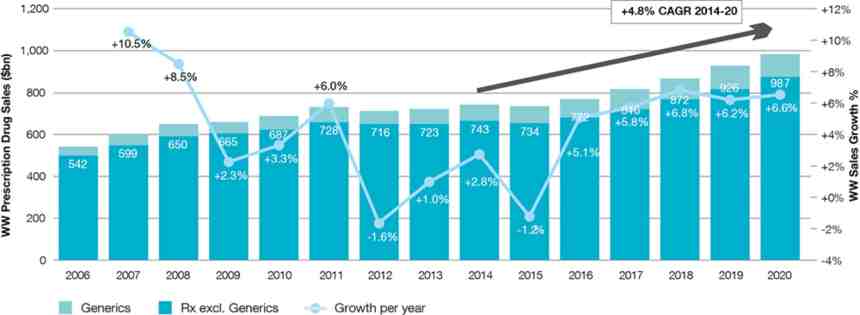
Medicinal Chemistry for Drug Discovery Market: Opportunities and Competitive Dynamics
The mightiest challenge in this industry is to reduce the number of drugs that fail in pre-clinical stages, as this facilitates the manufacturer to enter the market with a high-priced drug. But since the ADME profiling used in silico and cellular approaches have successfully reduced the attrition rate. According to industry experts currently structure-based drug design has high acceptance followed by fragment-based variation, natural products, while diversity-oriented synthesis and chemogenomics have negligible market shares. The top five active therapeutic research areas are cancer, infections, neurological, gastrointestinal, endocrine and cardiovascular.
Drug discovery is expected to be largely practiced at small niche biopharmaceutical companies around the world in the U.K., U.S., Western Europe, Eastern Europe, China, India, Brazil, South Africa and Mexico as investments, time and risks are comparatively less in this operations model than the traditional. Overall the medicinal chemistry has improved all these years with all updated technologies and methodologies.
The importance of small and medium scaled companies will increase in this market as it will reduce the time and cost for a big pharmaceutical company. Hence, in drug discovery medicinal chemistry plays important role but still the accuracy and precision of the study needs to be improved to achieve minimum rejections in the preclinical studies.
The report offers a comprehensive evaluation of the market. It does so via in-depth qualitative insights, historical data, and verifiable projections about market size. The projections featured in the report have been derived using proven research methodologies and assumptions. By doing so, the research report serves as a repository of analysis and information for every facet of the market, including but not limited to: Regional markets, technology, types, and applications.
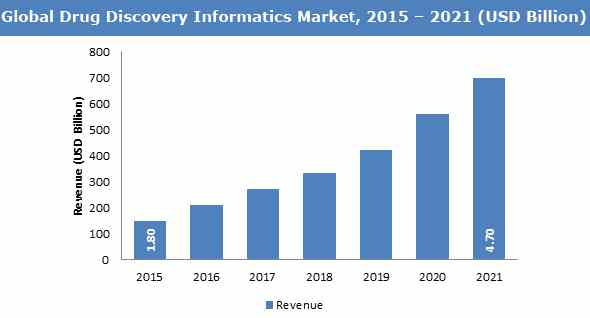
Medicinal Chemistry 2018
Conference Series LLC Ltd sincerely thanks all of our wonderful Speakers, Conference Attendees and Collaborators; Medicinal Chemistry 2018 Conference was our best ever!
10th World Congress on Medicinal Chemistry and Drug Design June 14-15, 2018 Barcelona, Spain hosted by Conference Series LLC Ltd was held during June 14-15, 2018 Barcelona, Spain at Holiday with the theme “Research on present and future techniques and development in Drug Design” which got splendid response. With the support and guidance of Organizing Committee Members and Editorial Board Members in the fields of Medicinal chemistry and materials science and astonishing presentations of all participants this prominent event became more impressive.
Conference Series LLC Ltd would like to convey a great appreciation to following eminent people, honourable guests and Keynote speakers.
Celerino Abad-Zapatero, University of Illinois at Chicago (UIC), USA
Franz-Josef Meyer-Almes, University of Applied Sciences Darmstadt, Germany
Barbara De Filippis, University “G. d’Annunzio”, Italy
Letizia Giampietro, University “G. d’Annunzio”, Italy
Vladimir Potemkin, South Ural State University, Russia
Maria Grishina, South Ural State University, Russia
C S Ramaa, Bharati Vidyapeeth’s College of Pharmacy, India
Conference Series LLC Ltd extends its gratitude towards Poster Judge Franz-Josef Meyer-Almes, University of Applied Sciences Darmstadt, Germany. We also congratulate our Best Poster awardees for their outstanding performances in the field of Medicinal Chemistry and appreciate all the participants who had put their efforts in poster presentations and sincerely wish them success in future endeavours.
Medicinal Chemistry 2018 Organizing Committee would like to thank the Moderator of the conference, Miss. Edita Sarukhanyan, University of Würzburg , Germany who contributed a lot for the smooth functioning of this event.
Conference Series LLC Ltd also took privilege to felicitate the Keynote Speakers, Organizing Committee Members, Chairs and Co-chairs who supported this event.
With sustainable excitement for grand success of Medicinal Chemistry 2018, Conference Series LLC Ltd is glad to announce next annual meeting
International Conference on Medicinal Chemistry to be held during April 01-02, 2019 in Prague, Czech Republic.
We hope your favourable support will make next annual also one more grand success event.
Conference Highlights
- Emerging Drug Targets
- Drug Discovery Chemistry
- Chemogenomics
- Medicinal Chemistry Strategies
- CADD (Computer Aided Drug Design)
- Bioanalytical Sciences and Organic Synthesis
- Enabling Technologies of Medicinal Chemistry
- Integrating Medicinal Chemistry into Drug Discovery
- Medicinal Chemistry Advances
- Drug Design and Synthesis
- Organic Chemistry
- Chemical Synthesis and Catalysis
- Synthetic Chemistry
- Biorganic Chemistry
- Pharmaceutical Formulation
- Applications of ADME in Drug Discovery
- Analytical Chemistry
- Pharmaceutical Industry
- Pharmacology and Toxicology
- Organic and Medicinal Chemistry Technologies for Drug Discovery
- Pharmaceutical Technology and Research
- Pharmaceutical Technology and Pharmaceutics
- Frontiers in Drug Development
- Advances in Drug Delivery
- Recent Advances in Pharmaceutical Technology
To share your views and research, please click here to register for the Conference.
To Collaborate Scientific Professionals around the World
| Conference Date | April 01-02, 2019 | ||
| Sponsors & Exhibitors |
|
||
| Speaker Opportunity Closed | |||
| Poster Opportunity Closed | Click Here to View | ||
Useful Links
Special Issues
All accepted abstracts will be published in respective Our International Journals.
- Journal of Medicinal Chemistry: Open Access
- Journal of Pharmacogenomics & Pharmacoproteomics: Open Access
- Journal of Molecular Pharmaceutics & Organic Process Research: Open Access
Abstracts will be provided with Digital Object Identifier by




